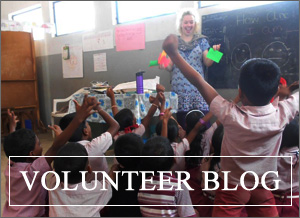A lot of people worry about safety overseas, so here is a collection of advice to help you stay safe and assure you there is no need to panic!
1. Money belt
Money Belts might seem silly (and I thought so when my mum gave me one!) but they are very handy. They are very cheap to buy before you go and mean that you can travel around in busy areas without worrying that someone will take your bag/money etc. as it is always on you in person and not hanging around the bottom of your chair/sliding around on a bus.
Some countries actually require you to carry your passport at all times so it’s also handy for that, rather than carrying it in a shoulder bag.
It’s also a good idea to take more than one bank card and to split these up so that you have then in different places; i.e. split across your wallet, your accommodation and your money belt. If you loose one you won’t have lost them all…
2. Large sums of money
It is often easier to take large sums of money out of an ATM because a) you don’t know when you will next have access to a cash machine and b) you incur bank charges each time you withdraw money.
I used Pacsafe Secure Shoulder Bag which means you know your money is safe (it is especially useful if you travelling after the project or on trains). You can get a few different sized lockable ‘safe’ bags from Pacsafe – some small enough for walking around a market, others big to fit in the majority of your valuables for longer journeys, including cameras, iPod’s, wallets and Kindle etc.
If you are travelling with friends it might be a good idea to buy one as a group, we shared a Pacsafe VentureSafe Travel Bag between three and it meant that we could have a peaceful night sleep on the night train not having to worry about our valuables.
3. Do not flash your valuables
Keep any valuables you have hidden and do not flash them around unnecessarily, if you have an old iPod or camera it may be best to take that rather than any brand new items. Replace any jewellery that you normally wear that is valuable with a cheaper alternative. Don’t take anything overseas that you are not prepared to get damaged or lost, just in case.
4. Blend in
Similar to above do not make yourself stand out with flash jewellery, watches or inappropriate clothing – walking around in sunglasses and shorts with your Nikon SLR around your neck just makes you look like a gullible tourist you are advertising that you are new in town and still wet behind the ears.
Instead wear local clothing or clothes that cover up shoulders, legs/knees and chest. You are less likely to be hassled if you don’t stand out as an obvious tourist and show that you have been in the area for a while. It will also be appreciated by locals that you are making an effort to fit in with their customs too which can be fairly conservative.
5. Travel in Groups
Avoid travelling alone if possible, especially after dark. If you need to go somewhere after dark in the place you are staying you can always ask your host family to escort you there. If you are staying somewhere new or you are by yourself, make friends with people staying in the same area and arrange to do visits or trips together.
6. Travel with a local
Your host family are likely to want to take you to visit places and their family, it means that you will be able to see local tourist attractions that aren’t in your guide books. It also means they can tell you about any dangers in the area and can advise you about any scams. My host family took me on two trips and both times I got to see amazing places that I would not have known existed.
7. Local Language
Learn some key phrases in the local language – it will help to show that you are not just a tourist but someone that cares about the culture. It will also help you out if you get lost and need to ask someone for directions or need advice on how to get somewhere.
8. Let people know where you are
If you are going away for a weekend or just popping out to visit another volunteer for an evening, let your family know where you are going and what time you expect to be back. Also take their number so you can keep them up to date if your plans change (quite likely if you are relying on local transport!) and it means you have a contact in case you need any help.
9. Common Sense
It may seem obvious, but if something doesn’t feel right go with your gut instinct. Use the same common sense that you would home, for example not travelling alone at night especially in dodgy areas, stay away from public demonstrations and disturbances etc.
10. Other information
Check out the FCO Check List for further advice on staying safe overseas and for specific information on particular countries.
We wish you safe travels and hope that this advice has helped to calm any nerves or worries about travelling abroad. Stay safe and enjoy your time abroad!




Comments are closed.